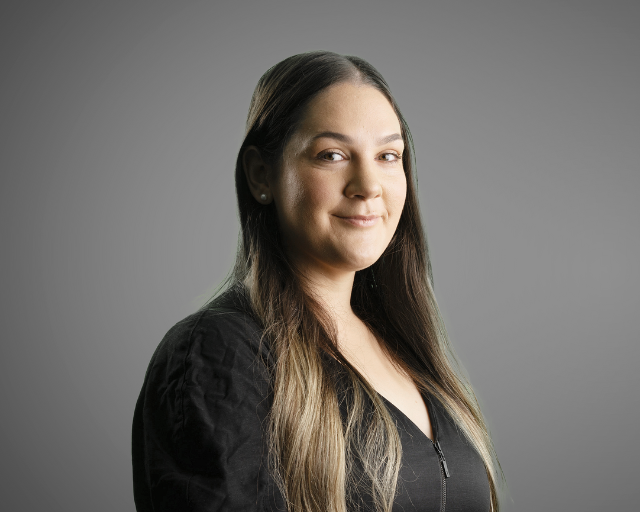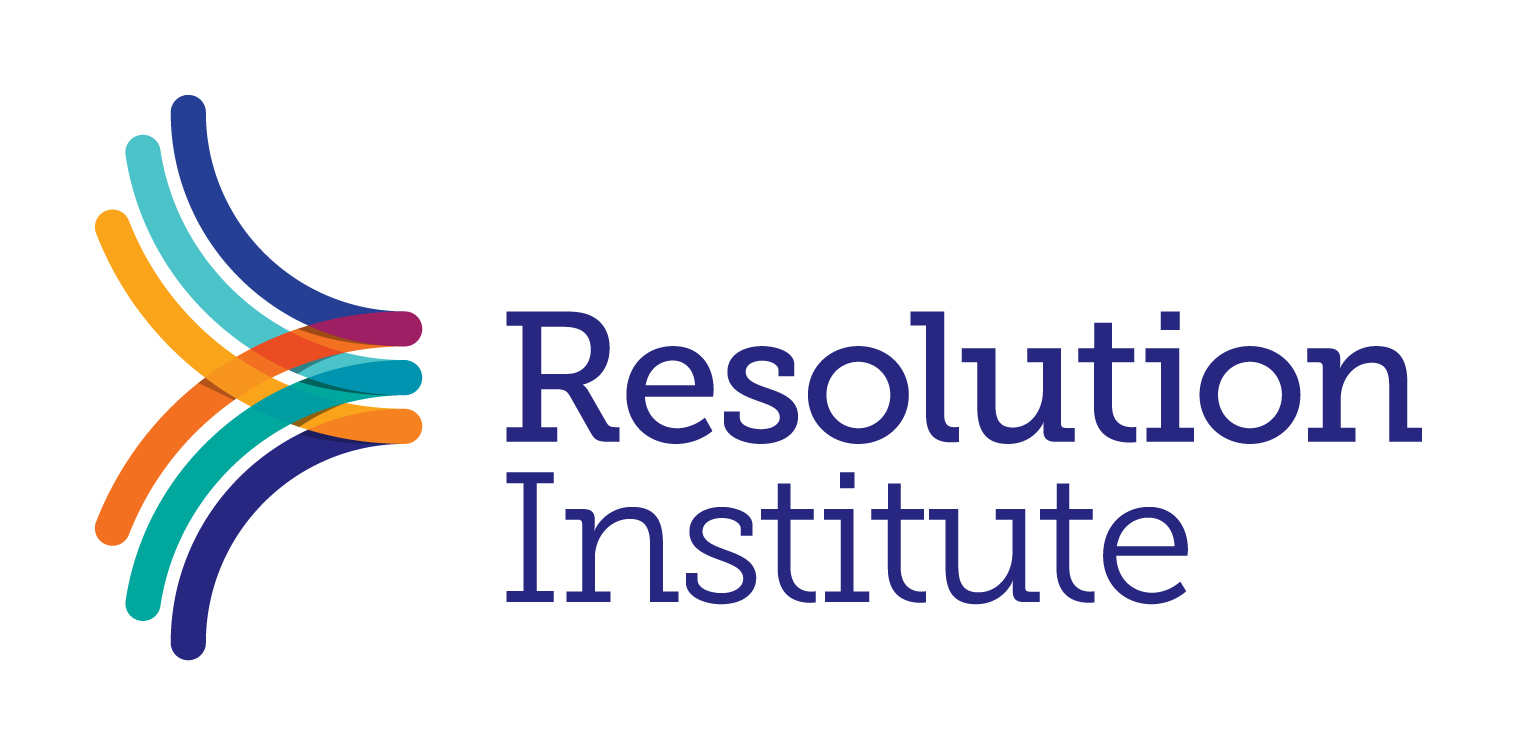
MASTER OF LAWS (APPLIED LAW) MAJORING IN FAMILY DISPUTE RESOLUTION PRACTICE AND FAMILY LAW
- 9 subjects
- $4,150 per subject
- FEE-HELP eligible
- 2 years part-time
- 4 intakes per year: Feb, May, Aug, Nov
IS YOUR TRUE CALLING TO HELP OTHERS? CONSIDER FAMILY DISPUTE RESOLUTION PRACTICE
Suited to compassionate and people-oriented professionals, family law is one of the most rewarding areas of practice. You’ll work closely with families and support them during the most pivotal moments in their lives. It’s also a constantly evolving field – opening the door to new and interesting challenges every day.
Within Family Law, Family Dispute Resolution Practice supports people affected by separation or divorce. But they work outside the typical, adversarial legal system. Instead, they provide a more human touch. As an accredited family dispute resolution practitioner, you will combine mediation with empathy to help families reach their own agreements. And where possible – you’ll give a voice to children so they can shape their own future.
The Master of Laws (Applied Law) majoring in Family Dispute Resolution Practice and Family Law offers focused training in negotiation, mediation, and communication, essential for effectively resolving family disputes. In the Family Law second major, you can choose from a variety of electives, covering areas such as family practice foundations, property and support issues, and complex parenting challenges. This program is designed to deepen your understanding of critical family law aspects, preparing you to adeptly navigate and resolve complex family-related legal issues.
To complete this award, you must successfully complete the following subjects:
- 4 core subjects (FDR1*, FDR2, FDR3 and FDR4) and
- FDR5 or 20 hours external practicum and
- 4 subjects from Family Law practice area.
Recognition of Prior Learning*
Current Nationally Accredited Mediators may be eligible for advanced standing for the FDR1 - Family Law and Mediation subject.
To formally become a Family Dispute Resolution Practitioner, you must also apply for accreditation with the Commonwealth Attorney-General’s Department. Learn more.
Complete family dispute resolution practice or the AMDRAS-accredited mediator training program to automatically receive free student membership with the Resolution Institute for the duration of your course and a 20% discount on the Institute’s professional membership fee for the first year of membership.
Plan your studies
Looking to plan your postgraduate program?
- Use the tool below to explore subjects by practice area and intake date.
- Prefer to review offline? Download the full PDF for a complete overview of all your options.
HOW TO ENROL
Follow these steps to complete your enrolment in a postgraduate program.
- Choose your first subject
Please note FDRP subjects are run as intensives in a six weeks format rather than the standard 12 weeks format. - Gather your documents
- Academic Records
You’ll need to submit one of the following:
- Academic Records
- An undergraduate degree or higher qualification in Psychology, Social Work, Law, Conflict Management, Dispute Resolution, Family Law Mediation, or equivalent.
- Accreditation under the National Mediator Accreditation System (NMAS) or the Australian Mediator and Dispute Resolution Accreditation System (AMDRAS).*
- Mediation skill set from the Community Services Training Package (CHC).
*Please note that from 1 April 2025 applicants who are seeking entry into the program on the basis of NMAS/AMDRAS will need to have held this status for 2 consecutive years at the time of the application for accreditation with the Commonwealth Attorney-General’s Department following the completion of the course.Recognition of prior learning (if applicable) Submit any relevant postgraduate certificates or qualifications if applying for RPL.
-
- Recognition of prior learning (if applicable)
Submit any relevant postgraduate certificates or qualifications if applying for RPL. - Proof of name change (if applicable)
If your name has changed, provide certified proof. - Unique student identifier (USI)
A USI is required by the Australian Government for all students (except offshore international students). Create or find your USI here.
- Recognition of prior learning (if applicable)
- Payment or financial assistance
Have your payment details or tax file number (TFN) ready if applying for FEE-HELP through the Commonwealth Government FEE-HELP scheme. - Submit your enrolment
Once ready, complete and submit your online enrolment.
Need help?
For assistance, contact Customer and Student Engagement at 1300 506 402 or email postgrad@collaw.edu.au
RE-ENROLMENTS
Re-enrolling for your next subject is simple!
Once you've enrolled in your chosen Award program, re-enrolling for the next subject is easy. Simply follow these steps:
- Choose your next subject.
- Log in to the customer portal.
- Complete the re-enrolment form and select your payment option.
FEES & FEE-HELP
Here’s what you need to know:
- The fee per subject in 2026 is $4,150 (no GST applies)
- Our fees are reviewed annually and may vary during your enrolment
- You need to pay your fees in full at the time of enrolment each semester.
- We accept EFT and credit card.
StudyAssist FEE-Help
- If you’re an Australian citizen, NZ citizen or you hold a permanent humanitarian visa, you may be able to defer payment through the Australian Government StudyAssist FEE-HELP scheme. Learn more about FEE-Help or visit the Australian Government StudyAssist FEE-HELP scheme website.
Good news! There’s no need to pay for your entire qualification upfront. Instead, you can pay as you learn – subject by subject. Which means, you can start off small by building your own Graduate Certificate, or Graduate Diploma, and then progress to a Master of Laws later, if you choose.
Please refer to our Policy Index - 1.3.11 Withdrawal policy.
Kay Smith Scholarship
The Kay Smith Scholarship honours one of the longest serving and most respected people of The College of Law. It is designed to support the education aspirations of outstanding law graduates and young lawyers. Learn more.
PRACTICUM COMPONENT
Successful completion of both FDR4 and FDR5 subjects will enable students to fully satisfy their practicum component requirement.
The option to complete the practicum requirements independently with an external supervisor, subject to meeting the usual requirements is also available. Any student requiring additional information regarding fulfilling the practicum requirements can contact the Customer and Student Engagement team at postgrad@collaw.edu.au.
Students can apply for recognition of prior learning for FDR5, should they organise and complete external practicum. You can find details of accredited family dispute resolution practitioners at Family Dispute Resolution Providers Register and Family Relationships Online which may assist your search for independent placements.
PREREQUISITES
You must hold a recognised law degree (LLB, JD, or equivalent) to enrol in the Master of Laws (Applied Law) majoring in Family Dispute Resolution Practice and Family Law.
ASSESSMENTS
Your assessments may vary from course to course. However, these are the most common assessments that you will need to complete:
- Mediation Role Plays
- Oral Assessments
- Written Assessments
- Short writing activities
- Reflection activities
For all student policies refer to our policy index.
FAMILY DISPUTE RESOLUTION PRACTICE (FDRP) SUBJECTS
FDR1 - Family Law and Mediation
Intake FDRPThis subject forms the foundation of the family dispute resolution (FDR) subjects. In this subject students will be introduced to family law and the place of mediation within family law.
Students will acquire the requisite knowledge to enable them, as a family dispute resolution practitioners (FDRP), to contextualise and appreciate each party’s unique situation within the family law framework, and assist each of them to understand their own role and their respective roles in the process.
This subject also discusses where mediation sits on the dispute resolution spectrum and how the process assists in the resolution of family disputes.
TOPICS
- Overview of Australian family law
- Obligations of a family dispute resolution practitioner
- The dispute resolution spectrum
- Conflict analysis and pre-mediation preparation
- Mediation models
- Facilitative mediation process
- Communication skills in mediation Common issues in mediation
FDR2 - Children’s Matters, Family Law and Family Dispute Resolution
Intake FDRPTOPICS
- Defining and understanding families
- Emotional impact of separation on family members
- Children's needs and best interests
- Family law and children's matters
- Parenting plans and parenting orders.
FDR3 - Advanced Family Dispute Resolution
Intake FDRPTOPICS
- Family violence, child protection and the law
- Screening for violence, risk assessment and safety planning
- Techniques for managing volatile clients and situations
- Ethics in family dispute resolution.
FDR4 - Case Management in Family Dispute Resolution Capstone
Intake FDRPTOPICS
- Introduction to family dispute resolution case management Intakes (and variations)
- Assessment for suitability Information and referrals for mediation
- Property matters in family dispute resolution
- Child support assessment formula
- Preparing for and conducting mediation
FDR5 - Virtual Simulated Practice
Intake FDRPThis subject is designed to provide students with the virtual simulation practice in family dispute resolution setting. This subject consists of the items of practical coursework. During this subject, students will be required to lead or co-facilitate on three matters, including: children matters and property matters.
TOPICS
This subject will be conducted over 8 weeks with 5 days online face to face sessions to be spread over 3 weeks. Each student will be allocated three matters and will be required to conduct an intake for each of the matters as well as a mediation session.
Students will also be required to complete several assessments associated with the matters such as written agreements, intake assessment forms and matter analysis.
The online face to face sessions will be conducted in the following weeks: Week 3 – 1 day online face to face; Week 4 – 3 days online face to face; and Week 7 - 1 day online face to face.
Students will be allocated in the groups of four and assigned a supervisor/coach for the assessments and feedback. Successful completion of this subject will provide students with the remaining 20 hours of clinical placement under the FDRP practicum requirements.
FAMILY LAW SUBJECTS
FLP00 - Capstone Project (Family Law)
Intake 2, 4TOPICS
THE SUBJECT HAS FOUR COMPONENTS
- Four short answer questions
- Two legal writing samples
- Oral communication (e.g. client interview) assessment held through online conferencing
- Reflective analysis
FLP1 - Foundations of Family Law Practice
Intake 1, 2, 3, 4TOPICS
- Introduction to family law
- Who is a family and who is a parent?
- Shared parental responsibility and legislative pathways
- Statutory considerations to determine the best interests of the child
- Child abuse and family violence
- Relocation and recovery of children
- Variation and enforcement of parenting orders
- Ethical and professional responsibility issues in children's cases
- Divorce, nullity and validity of marriages
FLP2 - Property, Maintenance and Child Support
Intake 2, 4TOPICS
- Jurisdictional issues and spouse maintenance
- Ethical issues, professional responsibilities and duties when acting for a party in family law financial proceedings
- The four step process: introduction and step 1
- The four step process: steps 2, 3 and 4
- Conciliation conference, private mediation and costs in family law proceedings
- Superannuation splitting, and tax, revenue and valuation issues
- Evidence and child support
- Documenting a settlement of a financial matter, and agreement about child support
FLP3 - Conducting Family Law Matters
Intake 1, 3TOPICS
- Conducting first conference, compulsory mediation and pre-action procedures
- Preparing for hearing
- Commencing proceedings and interim proceedings
- Court events and documents
- Division 12A proceedings and financial proceedings
- Preparing for and presenting the final hearing
- Dispute resolution
- Evidence
- Ethical Issues, and interlocutory processes and appeals processes
FLP11 - Advanced Parenting Issues
Intake 2, 4TOPICS
- Practice and procedure – the legislative framework
- Practice and procedure – specific issues
- Parentage - who is a "parent"
- Financial aspects of parenting – child maintenance and child support
- Representation of children and the role of the independent children’s lawyer
- The role of the states and territories in relation to child protection and adoption
- Complex parenting issues for the 21st century
- Practice and procedure – the final hearing, costs and appeals
FLP12 - Advanced Issues in Property, Maintenance and Child Support
Intake 1, 3TOPICS
- Jurisdiction in property matters, ascertaining the asset pool and categorising interests
- Corporations, trusts, partnerships and businesses
- Third parties, competing claims and bankruptcy
- Cross-border disputes
- Orders, agreements, setting aside and taxation issues
- Interim relief: injunctions, interim orders for property settlement and spousal maintenance
- Advanced issues in child support
- Appeals and stays in family law proceedings
FLP13 - Development & Management of a Family Law Practice
Intake 3TOPICS
- Introduction to developing and managing a family law practice
- Getting started
- Financial management - Pricing and costs, and leveraging for productivity profit
- Financial indicators
- Risk management
- Systems management
- Marketing management
- Managing people and managing clients
- Managing yourself
FLP14 - Family Dispute Resolution
Intake 2This subject is focused around the various dispute resolution options available in family law. Understanding and differentiating these options is crucial for a family law practitioner to give clients effective advice.
*Students that have completed the College of Law Family Dispute Resolution Practice are eligible for advanced standing for this FLP14 - Family Dispute Resolution subject.
TOPICS
- The family law dispute resolution spectrum and legislative framework
- Understanding disputes
- Dispute resolution and specialist lists - Evatt List, Lighthouse, Magellan List and others
- Negotiation
- Family dispute resolution processes and communication skills Issues of power, culture and control
- Child informed mediation, Legal Aid conferences and collaborative law
- Non-adversarial practice and family law - representing the client
FLP15 - Advocacy in Family Law
Intake 1, 3TOPICS
- Role of the advocate Preparing for hearing
- Child-related proceedings and financial proceedings
- Evidence Examination-in-chief and witnesses
- Cross-examination and re-examination
- Submissions, reviews, stay applications and the slip rule
- Interlocutory applications and appeals
START DATES
| Feb Intake 1 | May Intake 2 | Aug Intake 3 | Nov Intake 4 | |
|---|---|---|---|---|
| START DATE | 09 Feb 2026 | 11 May 2026 | 10 Aug 2026 | 09 Nov 2026 |
| CENSUS | 25 Feb 2026 | 27 May 2026 | 26 Aug 2026 | 02 Dec 2026 |
| END DATE | 01 May 2026 | 31 Jul 2026 | 30 Oct 2026 | 05 Feb 2027 |
| Subject | Start Date | Census | End Date | Workshop Date |
|---|---|---|---|---|
| DRP3 - Advocacy | 21 Sep 2026 | 30 Sep 2026 | 30 Oct 2026 |
15-17 October 2026 |
| DRP4 - Mediation | 19 Jan 2026 | 28 Jan 2026 | 27 Feb 2026 |
9 - 13 February 2026 |
| FDR1 - Family Law and Mediation | 09 Feb 2026 | 18 Feb 2026 | 20 Mar 2026 |
Intake 1 |
| FDR1 - Family Law and Mediation | 10 Aug 2026 | 19 Aug 2026 | 18 Sep 2026 |
Intake 1 |
| FDR2 - Children’s Matters, Family Law and Family Dispute Resolution | 23 Mar 2026 | 01 Apr 2026 | 01 May 2026 |
Intake 1, 2026 Intake 2, 2026 |
| FDR2 - Children’s Matters, Family Law and Family Dispute Resolution | 21 Sep 2026 | 30 Sep 2026 | 30 Oct 2026 |
Intake 1, 2026 Intake 2, 2026 |
| FDR3 - Advanced Family Dispute Resolution | 04 May 2026 | 13 May 2026 | 12 Jun 2026 |
Intake 1, 2026 Intake 2, 2026 |
| FDR3 - Advanced Family Dispute Resolution | 02 Nov 2026 | 11 Nov 2026 | 11 Dec 2026 |
Intake 1, 2026 Intake 2, 2026 |
| FDR4 - Case Management in Family Dispute Resolution Capstone | 26 Jan 2026 | 04 Feb 2026 | 06 Mar 2026 |
Intake 2, 2025 Intake 2, 2026 |
| FDR4 - Case Management in Family Dispute Resolution Capstone | 15 Jun 2026 | 24 Jun 2026 | 24 Jul 2026 |
Intake 2, 2025 Intake 2, 2026 |
| FDR4 - Case Management in Family Dispute Resolution Capstone | 25 Jan 2027 | 03 Feb 2027 | 05 Mar 2027 |
Intake 2, 2025 Intake 2, 2026 |
| FDR5 - Virtual Simulated Practice | 06 Apr 2026 | 16 Apr 2026 | 29 May 2026 |
Intake 1, 2026 Intake 2, 2026 |
| FDR5 - Virtual Simulated Practice | 07 Sep 2026 | 17 Sep 2026 | 30 Oct 2026 |
Intake 1, 2026 Intake 2, 2026 |
| LB3 - Business Strategy: Planning for Success | 04 May 2026 | 13 May 2026 | 12 Jun 2026 | |
| LB3 - Business Strategy: Planning for Success | 02 Nov 2026 | 11 Nov 2026 | 11 Dec 2025 |
| Subject | Start Date | Census | End Date | Workshop Date |
|---|---|---|---|---|
| FDR1 - Family Law and Mediation | 09 Feb 2026 | 18 Feb 2026 | 20 Mar 2026 |
Intake 1 |
| FDR1 - Family Law and Mediation | 10 Aug 2026 | 19 Aug 2026 | 18 Sep 2026 |
Intake 1 |
| FDR2 - Children’s Matters, Family Law and Family Dispute Resolution | 23 Mar 2026 | 01 Apr 2026 | 01 May 2026 |
Intake 1, 2026 Intake 2, 2026 |
| FDR2 - Children’s Matters, Family Law and Family Dispute Resolution | 21 Sep 2026 | 30 Sep 2026 | 30 Oct 2026 |
Intake 1, 2026 Intake 2, 2026 |
| FDR3 - Advanced Family Dispute Resolution | 04 May 2026 | 13 May 2026 | 12 Jun 2026 |
Intake 1, 2026 Intake 2, 2026 |
| FDR3 - Advanced Family Dispute Resolution | 02 Nov 2026 | 11 Nov 2026 | 11 Dec 2026 |
Intake 1, 2026 Intake 2, 2026 |
| FDR4 - Case Management in Family Dispute Resolution Capstone | 26 Jan 2026 | 04 Feb 2026 | 06 Mar 2026 |
Intake 2, 2025 6 February 2026 16 - 18 Feb 2026 QLD & WA 3 July 2026 6 - 8 July 2026 QLD & WA Intake 2, 2026
|
| FDR4 - Case Management in Family Dispute Resolution Capstone | 15 Jun 2026 | 24 Jun 2026 | 24 Jul 2026 |
Intake 2, 2025 6 February 2026 16 - 18 Feb 2026 QLD & WA 3 July 2026 6 - 8 July 2026 QLD & WA Intake 2, 2026
|
| FDR4 - Case Management in Family Dispute Resolution Capstone | 25 Jan 2027 | 03 Feb 2027 | 05 Mar 2027 |
Intake 2, 2025 6 February 2026 16 - 18 Feb 2026 QLD & WA 3 July 2026 6 - 8 July 2026 QLD & WA Intake 2, 2026
|
| FDR5 - Virtual Simulated Practice | 06 Apr 2026 | 16 Apr 2026 | 29 May 2026 |
Intake 1, 2026 Intake 2, 2026 |
| FDR5 - Virtual Simulated Practice | 07 Sep 2026 | 17 Sep 2026 | 30 Oct 2026 |
Intake 1, 2026 Intake 2, 2026 |

My studies with the College provided me further insight into where family law is now looking to give some children a voice, particularly regarding parenting plans.
Josephine Byrnes-Luna, FDRP Graduate

Family law can be very litigious, but it doesn't have to be. So my practice in learning more about dispute resolution areas and how to manage dispute resolution and conflict resolution was valuable.
Emma Youdale, LLM Graduate - FDRP
NOT SURE IF THIS IS THE RIGHT COURSE FOR YOU?
Send us your questions or speak with our team about your goals and to get tailored advice.
PURSUE YOUR PASSION - ADVANCE YOUR EXPERTISE
Discover more
Kay Smith Scholarship
If you’re experiencing financial hardship and unable to afford postgraduate study, see if you are eligible for the The Kay Smith Scholarship. This scholarship honours one of the longest serving and most respected people of The College of Law. It is designed to support the education aspirations of outstanding law graduates and young lawyers.
Got questions or want to enrol?
If you have any questions about subjects, awards, intake dates, or anything else related to our postgraduate programs, don't hesitate to reach out. Book a call with one of our Student and Customer Engagement Advisors who are ready to assist you.
Student success stories
Read how Craig’s postgraduate study accelerated his career by a decade and enabled him to become a specialist and eventually started his own firm.
FREQUENTLY ASKED QUESTIONS
This depends on your workload and your personal situation. If you complete 1 subject every intake you could complete your Masters in 2 years. However, you have five years to complete the course from your intake commencement date.
We recommend that you set aside 10-12 hours a week on study per subject, 1 unit per semester. Completing two subjects in the same intake may require up to 25 hours of study and readings each week.
There are four intakes a year: February, May, August and November.
As you have 5 years to complete your Masters, you don’t need to complete a subject every intake. However, if you do not study for 2 consecutive intakes – then you can apply for a Leave of Absence. You can only request a leave of absence twice over the course of your studies.
You can do any of the following without financial penalty any time before the published census date for each intake:
- Withdraw completely
- Change the subject or course you are enrolled in
- Defer it to a subsequent intake (must be within the next 12 months)
Learn more by reading our Policy Index.
Yes, you can, but StudyAssist FEE-HELP will not apply.
For 2026, each subject in our postgraduate programmes costs $4,150 with no GST applicable.
Please note that our fees are subject to annual review and may change during your enrolment. Full payment is required at the time of enrolment each semester, and we accept various payment methods including Electronic Funds Transfer (EFT) and credit card. Additionally, if you are an Australian citizen, a New Zealand citizen, or hold a permanent humanitarian visa, you may be eligible to defer your payment through the Commonwealth Government's FEE-HELP scheme.
Yes, if you are an Australian citizen or permanent resident you may be eligible to receive FEE-HELP. For more information, download the FEE-HELP Factsheet.
The College’s Credit for Prior Learning Policy encourages practitioners who have completed previous postgraduate and other recognised study to apply for credit towards either the LLM (Applied Law) or the Master of Applied Law (Family Law).
A maximum of three subject credits may be granted towards the Masters awards.
- If you have undertaken a Graduate Diploma of Legal Practice with The College of Law within the last ten years, you may apply to receive up to two elective subjects of unspecified credit.
- If you have undertaken a Graduate Diploma of Legal Practice with another provider within the last ten years, you may apply to receive one elective subject of unspecified credit.
- If you have undertaken other postgraduate study, such as an LLM or Graduate Diploma of Law, whether you have completed the award or not, you may be eligible to receive credit for that study.
- Accredited Specialists may qualify for exemption of the foundations subject and Capstone Project for their area of major.
- Applicants who have completed a Legal Practice Management Course at The College of Law in may receive one subject specified credit.
You may be entitled to claim your full 10 units per subject for your CPD requirements.
However, you may still need to complete some mandatory CPD units. Please check with your local law society for the requirements in your state or territory.
WA-based students may claim up to 6 units per subject (6 CPD units for an intensive subject that has a compulsory workshop requirement or 4 CPD units for any other subject). College will lodge the CPD points with the Legal Practice Board on successful completion of the subject(s).
The Kay Smith Scholarship is designed to assist law graduates and young lawyers in Australia and New Zealand facing financial or personal hardships by covering the costs of a Master of Laws (Applied Law) or a Practical Legal Training course at The College of Law. It honours Kay Smith’s significant contributions to the college. Eligible applicants must demonstrate financial need, academic commitment, and community impact. Applications are due annually by December 15.
The College of Law offers postgraduate courses across a wide range of legal practice areas, designed to help you specialise, deepen your expertise and advance your career.
You can choose from:
- Business Law and Transactions
- Commercial Litigation
- Dispute Resolution
- Family Dispute Resolution Practice
- Family Law
- Government and Public Sector Law
- In-house Practice
- International Arbitration
- Wills and Estates
- Estate Planning
- ASEAN+6 Legal Practice
- Property Law
- Legal Business Management
- Additionally you can Customise your program or choose a double major
Each area includes Graduate Certificate, Graduate Diploma and Master of Laws options, giving you the flexibility to tailor your study to your professional goals.
Yes. Many LLM students choose electives from our Legal Business Management course. Please contact us to learn how.
No. To become a Family Dispute Resolution Practitioner, you will need to:
- Complete the Graduate Diploma in Family Dispute Practice (FRDP)
- Seek accreditation with the Commonwealth Attorney-General’s Department
Many students choose to pursue an LLM with a double major in Family Law and FDRP.
Yes. If you are from a non-English speaking country or your previous studies were in a language other than English, you will need to demonstrate your English skills in accordance with the IELTS standard before starting the program.
The requisite IELTS standard is at level 8 (writing), 7 (listening), 7.5 (speaking), 7 (reading), and 7.5 overall.
There are many ways to build your legal career. You can specialise in a practice area that aligns with your interests and clients’ needs.
Explore our career guides to see where each path could take you:
- Business Law and Transactions
- Commercial Litigation
- Dispute Resolution
- Family Dispute Resolution Practice
- Family Law
- Government and Public Sector Law
- In-house Practice
- International Arbitration
- Wills and Estates
- Estate Planning
- ASEAN+6 Legal Practice
- Property Law
- Legal Business Management
Each guide outlines typical work, key skills, study options and how to get started.
JOIN OUR NEWSLETTER
Sign up to keep up to date with latest news, programs, events and career tips.





